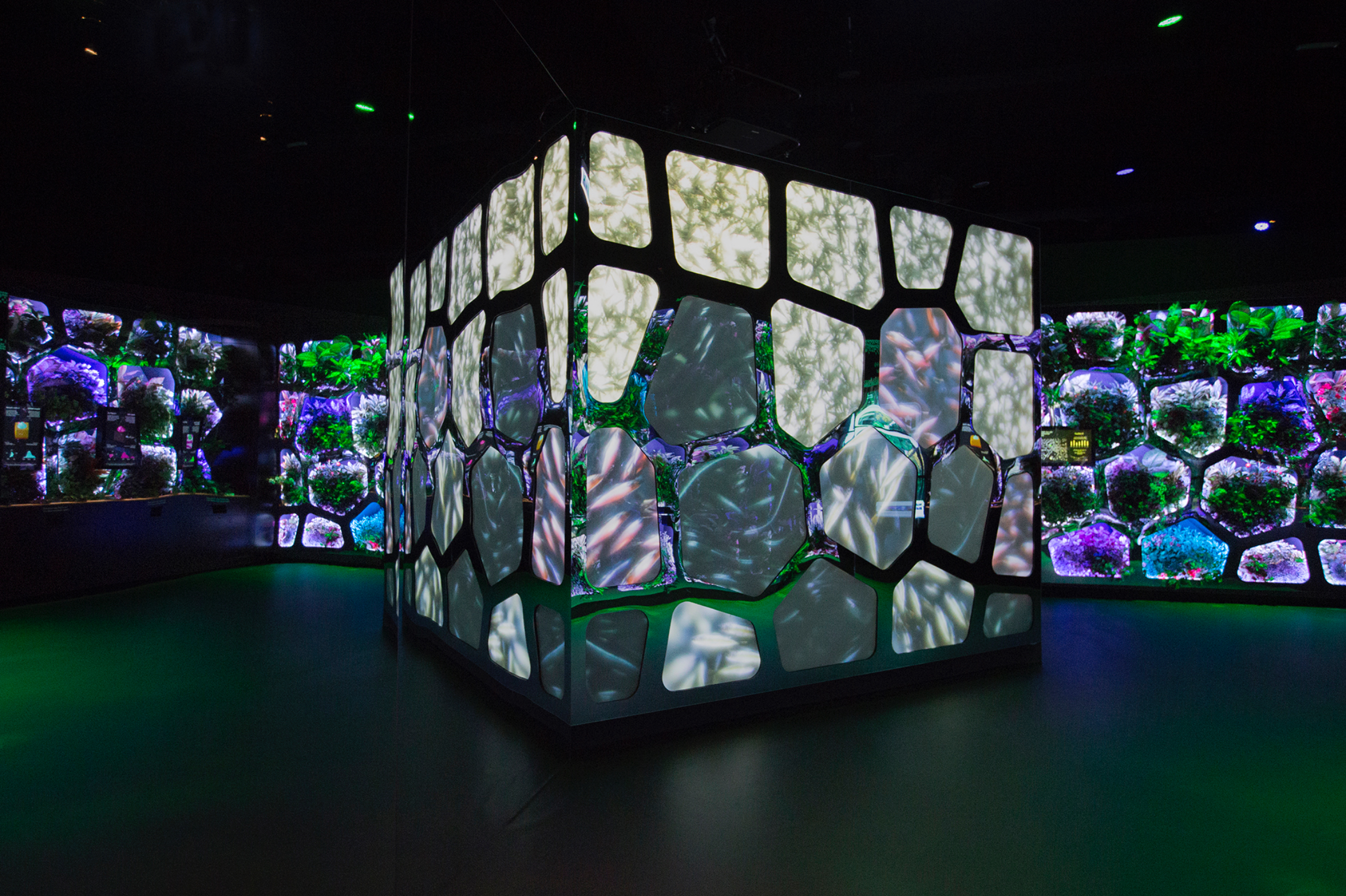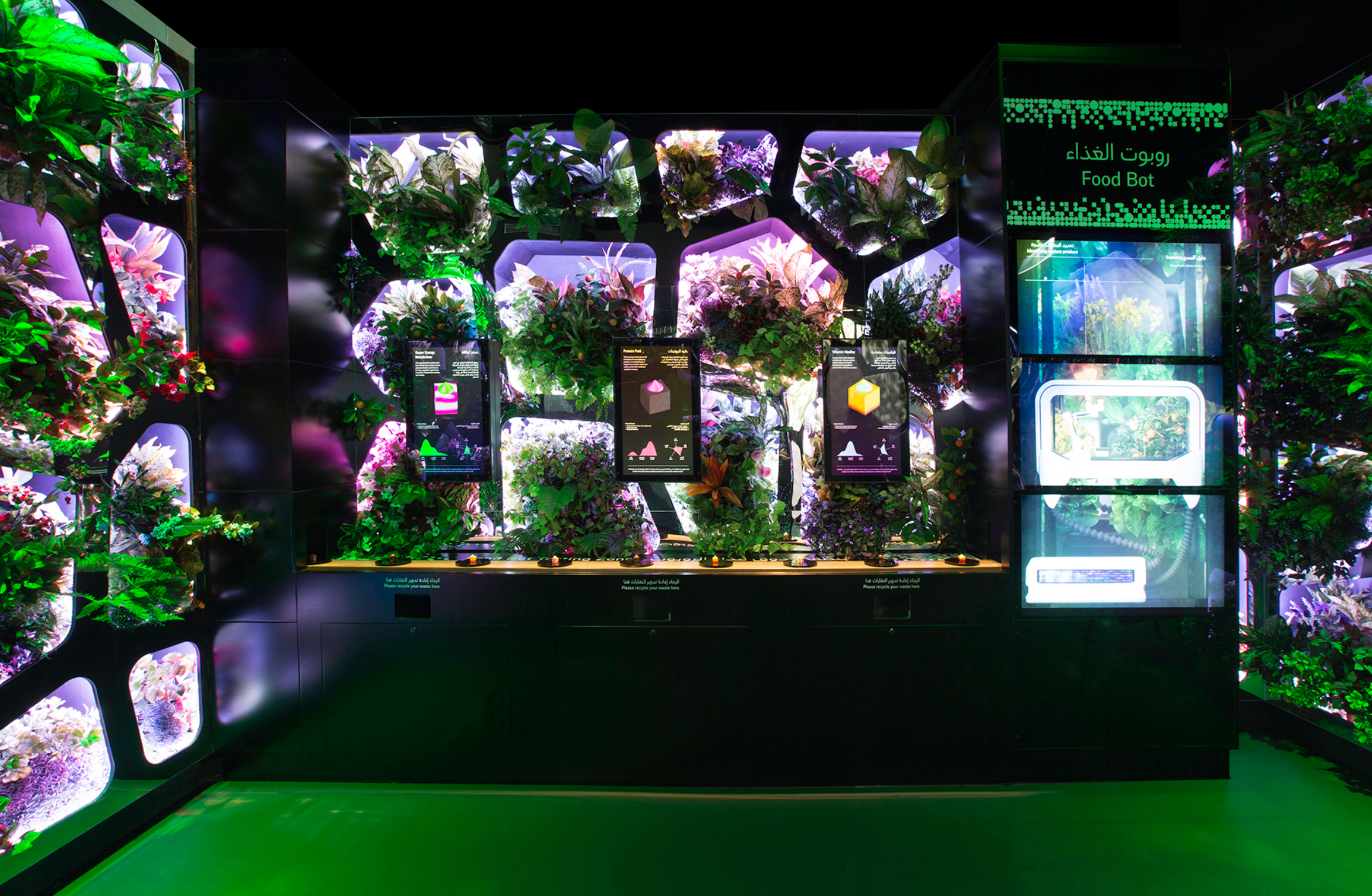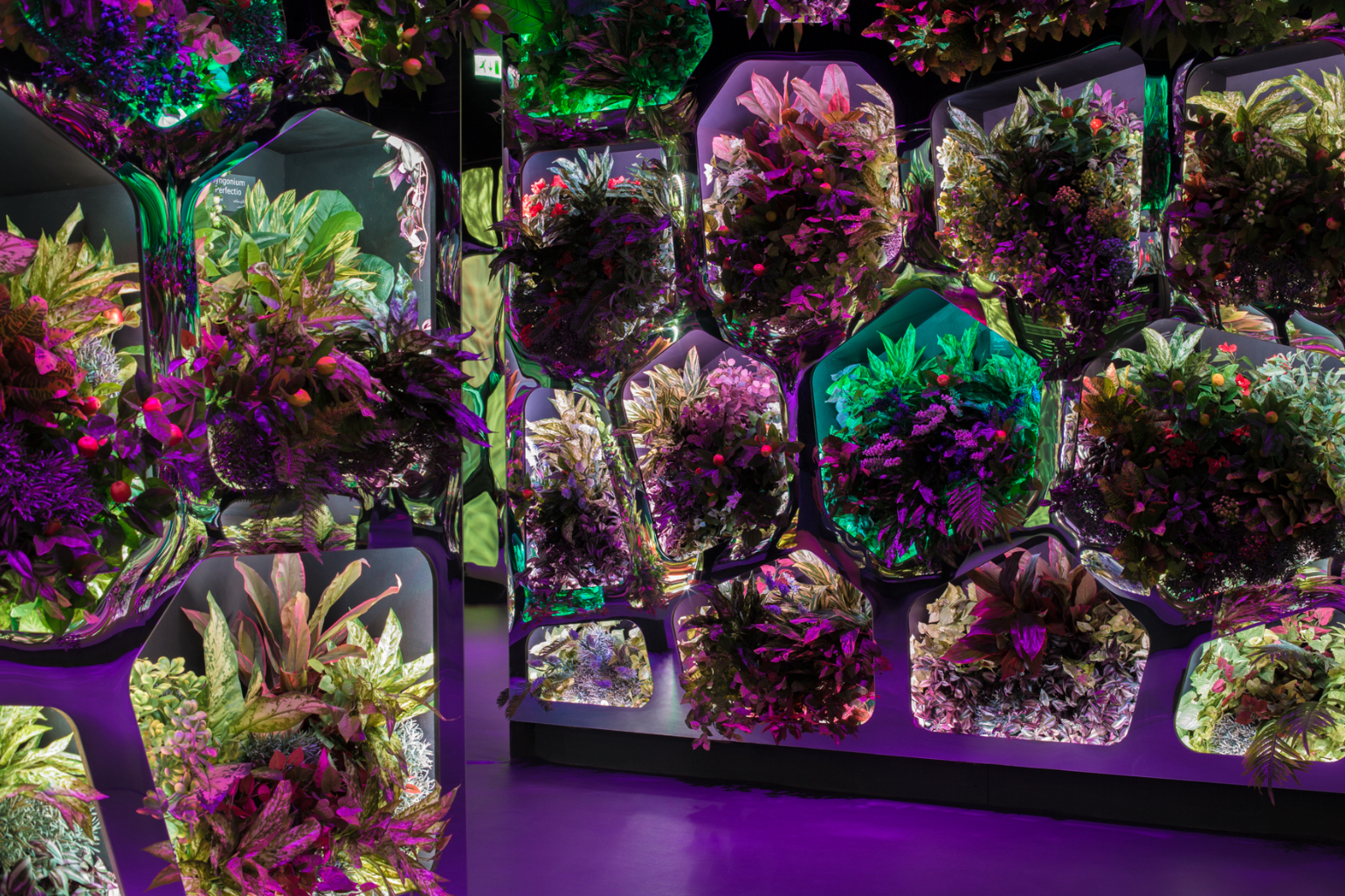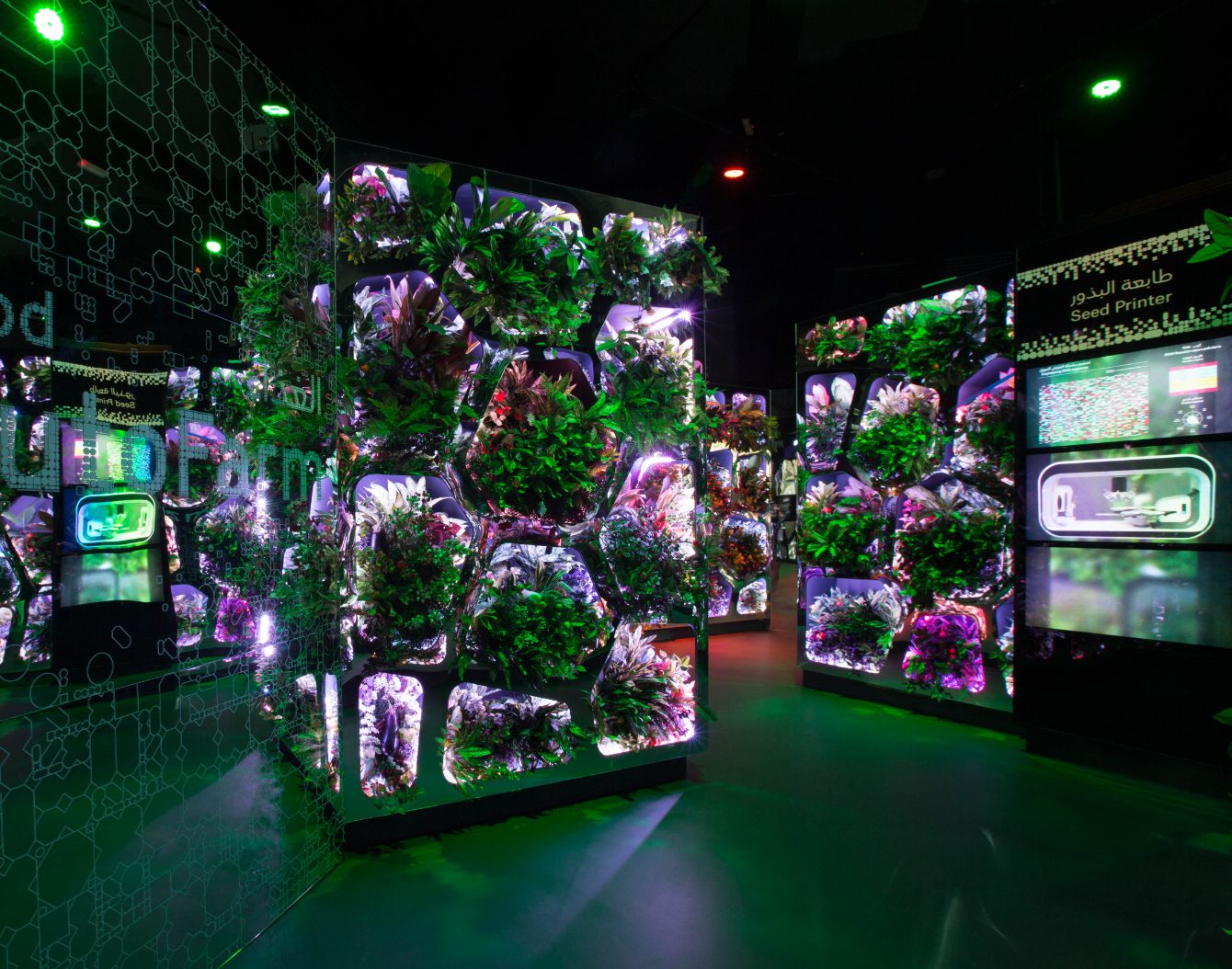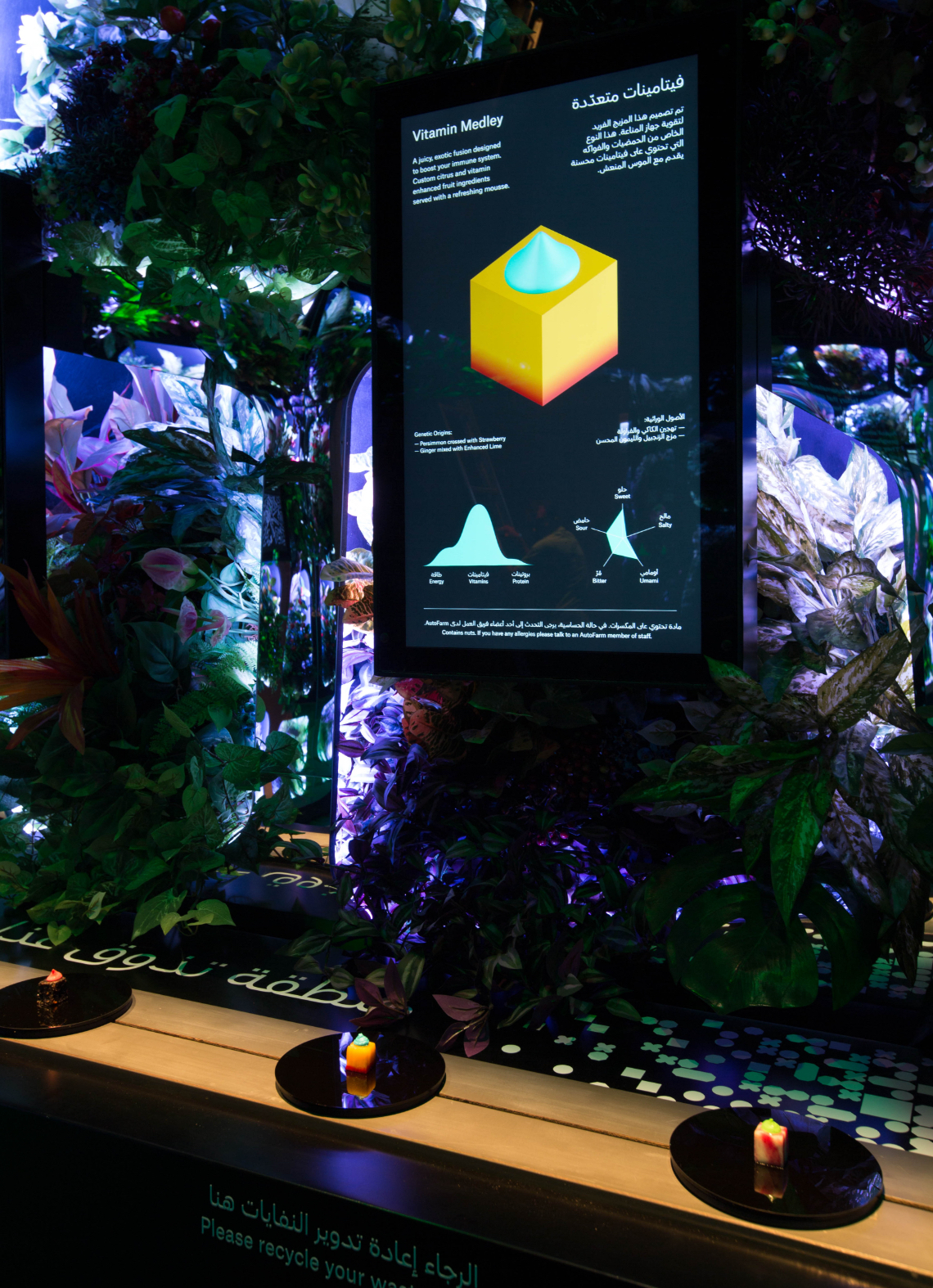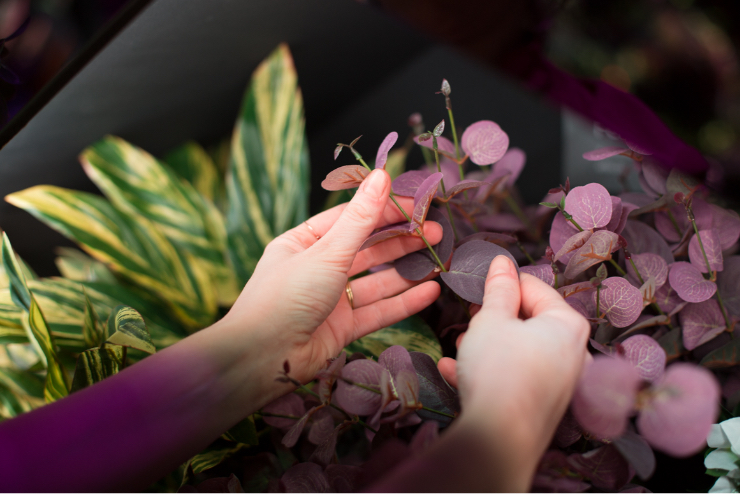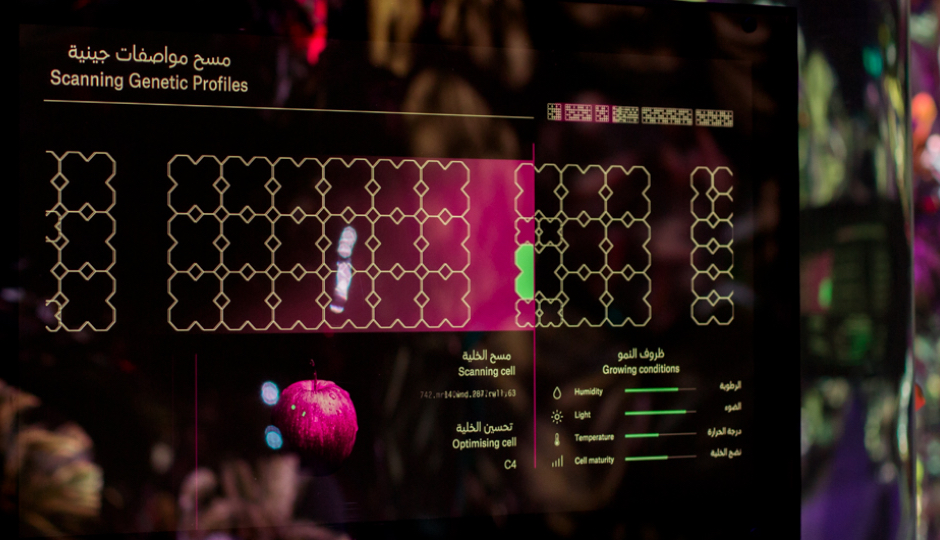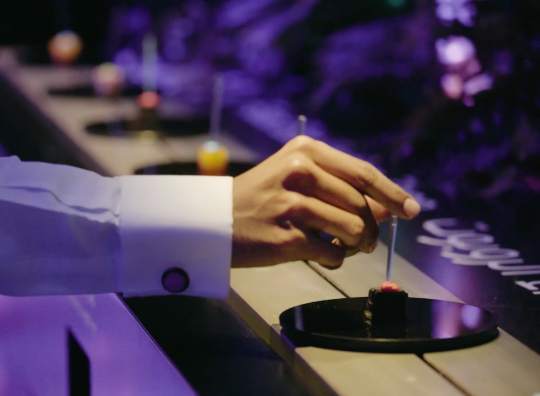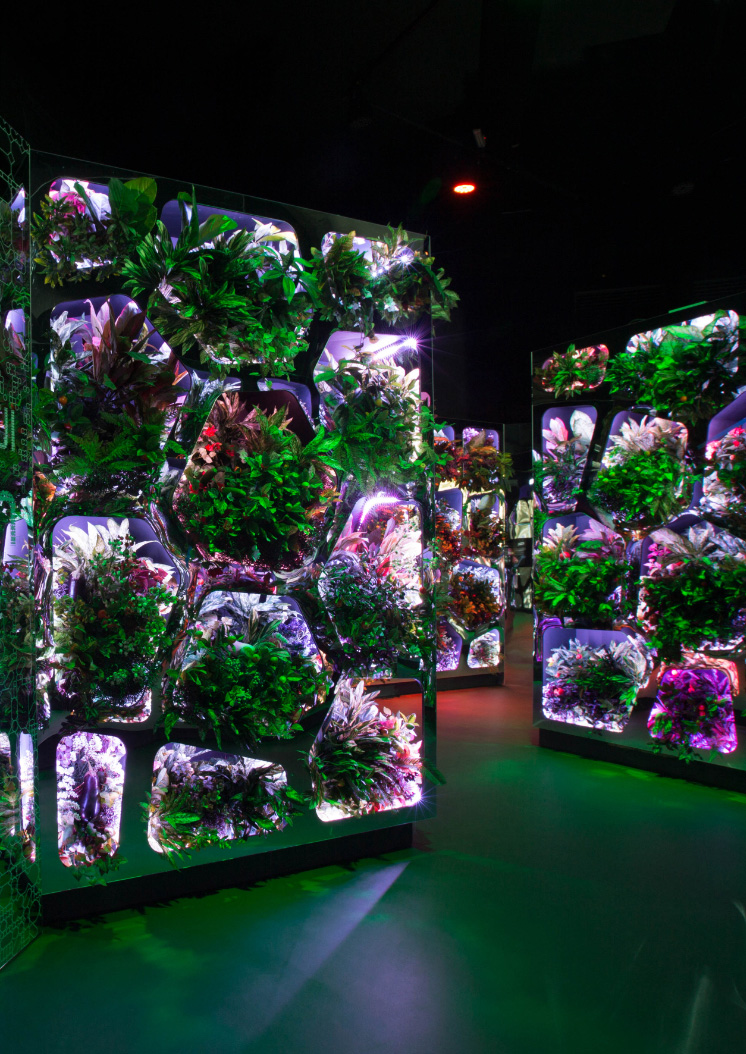Climate change reimagined
Dubai future foundation
Climate Change Reimagined marked the fourth year that Tellart, in partnership with the Dubai Future Foundation, opened a major exhibition at the annual World Government Summit in Dubai. This edition addressed growing concerns over the inevitability of climate change.
Set in 2050, it explored a future where humanity has not only survived the devastating impacts of climate change, but has created new ways to thrive. The exhibition proposed three new ideas for how countries can face the challenge head-on and shape the future.
There is wide consensus that global warming poses a grave and urgent threat to humanity—perhaps most clearly articulated in the disturbing level of temperature rise known by scientists as the “human extinction threshold.” During development, Tellart and the Dubai Future Foundation collaborated with climate change experts to understand and characterize the difficult challenges that lie ahead.
The three biggest factors contributing to humanity's ecological footprint are global industry, agriculture and urbanism. The exhibition framed these as invitations to deeply reimagine the way we live on Earth. By welcoming radical innovation as an exciting economic opportunity, we might succeed in meeting humanity's need for water, food and shelter—while creating a future of sustainability, adaptability and resilience.
“The exhibition was an immersive interactive architectural experience supported by sound, scent, vibration, scenography, lighting, screens, video, artefacts, actors and more. Visitors stepped into a convincing future world and inhabited it as active participants. We describe such experiences as ‘high-fidelity prototypes of plausible futures.”
Christian Ervin, interviewed for Frame Magazine
Fictional Desalination Plant
In the first exhibit visitors were welcomed onto the projected viewing deck of an offshore bio-desalination plant in Dubai. 360° video projections took them on an immersive journey underwater to see how the facility provides a local means of filtering saltwater into clean drinking water using natural processes. This freshwater factory combines the genes of a jellyfish (a highly absorptive natural material) with mangrove roots (one of nature's best desalinators). In this future scenario, Dubai has become a global pioneer in biomimicry and exports these bio-desalination plants across the world, making fresh water accessible to everyone.
AutoFarm
Visitors then visited the “AutoFarm,” an automated food production factory that can grow fresh food indoors for an entire neighborhood. The farm showed plants, fish and even insects being grown with incredible efficiency.
Seed Printer
Visitors watched genetically engineered plant seeds being printed by miniature autonomous farming bots.
Food Bot
Visitors could even taste delicious samples created by the Food Bot, a machine that intelligently harvests produce the moment it is ripe and immediately turns it into highly nutritious food items.
“Tellart is at the forefront of an industry that doesn't really have a name. What it does is sometimes labeled “design fiction,” a genre that might be defined as “prototypes that allow you to suspend your disbelief about the ways the world is changing around you.”
Alexander Porter, co-founder of Scatter, in The Verge March 2017
The “City Kit” Sales Center
Research suggests that over 375 million people will be displaced because of rising sea levels if global temperatures continue to rise. In the final exhibit, the City Kit Sales Centre introduced the idea of self-building infrastructure solutions that help provide shelter wherever it's needed. Using biotechnology and robotics these kits could grow self-sufficient cities in a matter of weeks.
The demo began with the Kit being dropped in a desert location. Within seconds it unfolded itself into the simple skeleton of a house. After evaluating local surroundings, it transformed local resources into building materials. As more Kits were dropped, they connected together to form a growing and organic urban network.
Making choices tangibles
Visitors were asked to prioritize the UAE's technology investments for a more resilient future. By voting they were also pledging their personal commitment to address climate change.
“For the exhibit, Tellart takes topics that will profoundly impact society in the future—the effects of AI and robotics on human life, for example—and visualizes futuristic scenarios that they hope will anticipate the behavioral, legislative, and logistical challenges that lie ahead.”
Meg Miller for Fast Company Co.Design
For the full-length exhibition film and additional information about Climate Change Reimagined, click here.
Highlights
- Experiential centrepiece of the World Government Summit.
- Attended by 4,000 global leaders from 139 countries.
- Launchpad for multiple UAE and Dubai government policies, with a special focus on autonomous vehicles
- Research process involving dozens of the world's top technology, futures, and climate thinkers
- 360° introduction film screened in a cinematic cylinder with 5 HD projectors and a 3-dimensional 15.3 sound system and an underfoot sub-bass rumbler system.
- Kaleidoscopic food production facility featuring hundreds of dynamically lit growth cells
- Hundreds of influential opinions captured about the future of Climate Change during a final survey experience
Project team
Tellart directed the project from start to finish, with support from an international team of partners:
Technical and creative partners: Marshmallow Laser Feast, SOFTlab, Spacehabs, Idee und Klang, LUST, Cropbox, and Shtik.
Onsite build and installation partners: Projex, Neumann & Müller, Hypsos and PublicisLive.
Foresight research and workshop facilitation partner: Scott Smith (Changeist).
